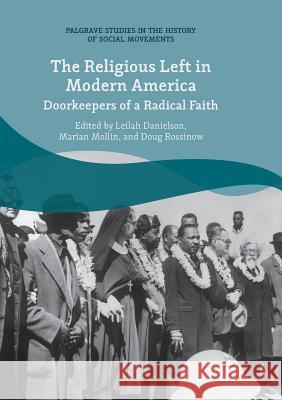The Religious Left in Modern America: Doorkeepers of a Radical Faith » książka
topmenu
The Religious Left in Modern America: Doorkeepers of a Radical Faith
ISBN-13: 9783030103187 / Angielski / Miękka / 2019 / 303 str.
Kategorie BISAC:
Wydawca:
Palgrave MacMillan
Seria wydawnicza:
Język:
Angielski
ISBN-13:
9783030103187
Rok wydania:
2019
Wydanie:
Softcover Repri
Numer serii:
000756587
Ilość stron:
303
Waga:
0.38 kg
Wymiary:
21.01 x 14.81 x 1.7
Oprawa:
Miękka
Wolumenów:
01
Dodatkowe informacje:
Wydanie ilustrowane











